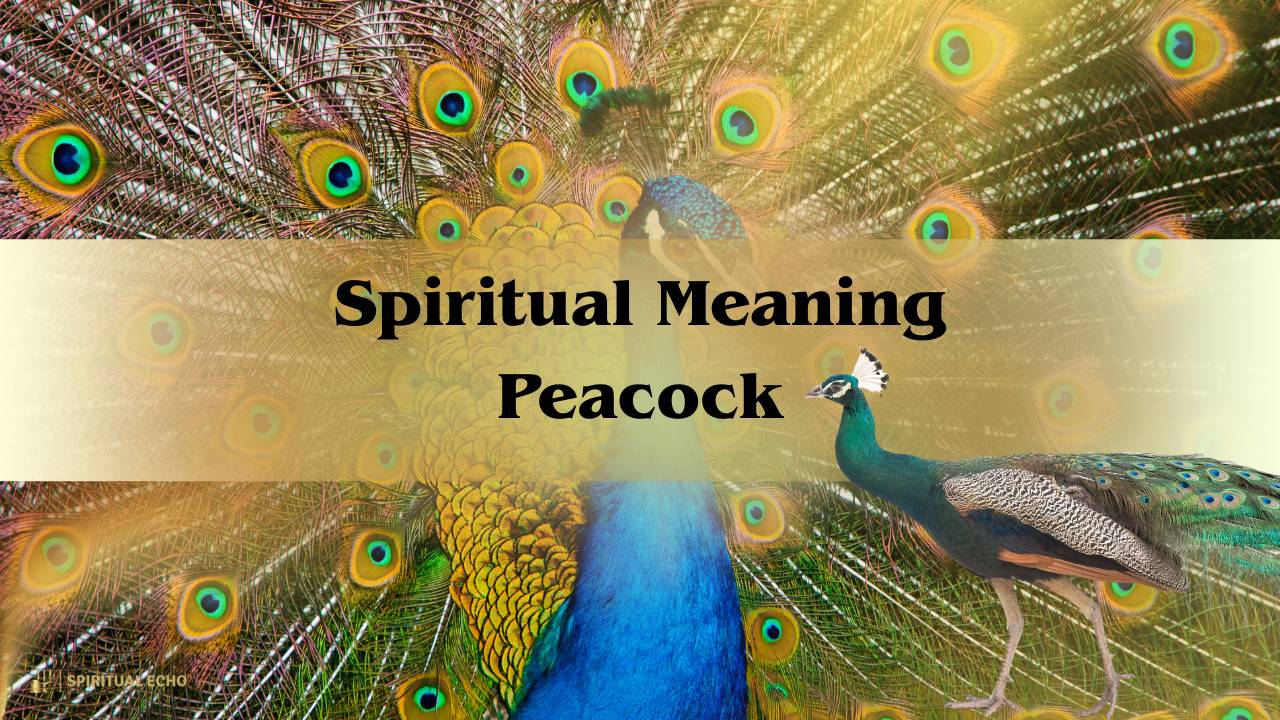Spiritual benefit refers to the positive impact on one’s inner self and emotions. That arises from engaging in practices or beliefs that nurture the spirit.
It involves finding a sense of peace, purpose, and connection to something greater than oneself. This can be achieved through various means, such as meditation, prayer, or acts of kindness.
Spiritual benefit meaning include a deepened understanding of life, increased compassion for others, and a heightened sense of gratitude.
Holding spiritual practices can contribute to a more fulfilling and balanced existence, showing a sense of harmony and contentment in both good times and challenging moments.
What is the meaning of spiritual benefits? The meaning of spiritual benefits refer to the positive effects on our inner self that come from engaging in activities or beliefs that nurture the spirit. This might involve practices like meditation and prayer. It is about finding a deeper sense of fulfillment and balance in our lives.
- Spiritual Benefit Meaning: Brief Overview
- Spiritual Benefit Definition
- Spiritual Beliefs Examples
- Inner Peace And Its Importance In Spiritual Growth
- Exploring The Different Aspects Of Spiritual Well-Being
- Incorporating Gratitude And Self-Reflection Into Daily Life
- Balancing Spirituality With Other Aspects Of Life
- The Role Of Faith And Belief Systems In Spiritual Benefits
- Seeking Guidance And Support From Spiritual Communities Or Mentors
- FAQ About Spiritual Benefit Meaning
- Final Thought 💭

Spiritual Benefit Meaning: Brief Overview
The term “spiritual benefit” essentially means the positive impact on our inner prosperity that comes from certain beliefs. It is about finding a sense of peace and connection to something greater than ourselves.
When we talk about spiritual benefits, we are referring to the positive effects on our emotions and overall happiness.
This could include gaining a better understanding of life, being more compassionate to others, and feeling a deeper sense of gratitude.
In a nutshell, spiritual benefits contribute to a more fulfilling and balanced life, providing a sense of harmony and contentment.
Spirituality Meaning
Spirituality is all about understanding and connecting with the deeper aspects of life. It involves exploring a sense of purpose and connection to something larger than ourselves.
It is important to note that spirituality is a highly individual and subjective experience, allowing people to find meaning and purpose in various ways.
Some may find spirituality in nature, relationships, or acts of kindness, while others may seek it through formal religious practices.
Spiritual Person Meaning
A spiritual person is someone who places importance on their inner wellness and seeks meaning and connection beyond the material aspects of life.
A spiritual person engages in practices like meditation and prayer. They may prioritize qualities like compassion, gratitude, and empathy, aiming to cultivate a harmonious relationship with themselves and the world around them.
A spiritual person is someone who values the journey of self-discovery and seeks a connection with the spiritual dimensions of life.

Spiritual Benefit Definition
Spiritual benefits relate to the positive impacts on our inner development that arise from engaging in activities or beliefs that nurture the spirit. These benefits go beyond the material aspects of life and involve finding a sense of peace, and purpose.
They include a deepened understanding of life, increased compassion for others, and a heightened sense of gratitude.
Holding spiritual practices can contribute to a more fulfilling and balanced existence, showing a sense of harmony and contentment within oneself and in relationships with others.
Spiritual Well-Being Examples
Examples of spiritual well-being show the positive aspects of an individual’s inner life. Engaging in practices like mindfulness meditation, where one focuses on the present moment, is an example of nurturing spiritual well-being.
Acts of kindness and compassion towards others also contribute to a sense of spiritual well-being, showing a connection to something beyond oneself.
Finding solace in nature, whether through walks in the park or moments of quiet reflection, is another example. For some, participating in religious ceremonies or communal worship enhances their spiritual well-being.
Spiritual Beliefs Examples
Spiritual beliefs can take various forms, reflecting personal perspectives and connections to something beyond the material world.
For instance, belief in a higher power, like God or a universal energy, is a common spiritual belief found in many religions.
Others may find spiritual meaning in the interconnectedness of all living things or the idea of a guiding force in nature.
Some people derive inspiration from their inner selves, considering their intuition or inner wisdom as a source of spiritual guidance.
Personal rituals, meditation practices, or moments of reflection are also examples of how individuals express their spiritual beliefs.
Spiritual beliefs are diverse and unique to each person, providing a framework for understanding life and finding a deeper sense of purpose and connection.
Inner Peace And Its Importance In Spiritual Growth

Inner peace plays a crucial role in spiritual growth, signifying a calm and balanced state of mind that comes from within. It is the foundation upon which spiritual wellness is built.
Achieving inner peace through practices like meditation or mindful reflection shows a deeper connection to one’s spiritual self.
In the journey of spiritual growth, inner peace acts as a guiding force, helping individuals navigate life’s challenges with a sense of tranquility and clarity.
This emotional and mental harmony allows for an exploration of one’s beliefs, values, and the greater purpose in life.
The importance of inner peace in spiritual growth lies in its ability to create a stable and receptive mindset, enabling individuals to hold their spiritual journey with openness and a heightened sense of awareness.

Exploring The Different Aspects Of Spiritual Well-Being
Exploring the various facets of spiritual well-being involves digging into different aspects that contribute to a person’s inner harmony and fulfillment.
It encompasses practices like mindfulness, meditation, or engaging in acts of kindness that nurture a sense of peace.
Understanding and aligning one’s values and beliefs play a role in spiritual well-being, as does developing a connection to something greater than oneself, whether through nature, community, or personal reflection.
This journey involves acknowledging and accepting the diversity of spiritual experiences, recognizing that each individual may find meaning in their unique way.
The exploration of spiritual well-being is a personal and ongoing process, promoting a deeper understanding of oneself and the world, leading to a more balanced and enriched life.

Incorporating Gratitude And Self-Reflection Into Daily Life
Incorporating gratitude and self-reflection into daily life involves holding simple practices that can have a big impact on our wellness.
Cultivating gratitude means taking a moment each day to appreciate the positive aspects of our lives, both big and small.
It could be expressing thanks for good health, supportive relationships, or moments of joy. Self-reflection, on the other hand, entails pausing to examine our thoughts, feelings, and actions.
This introspective practice allows us to learn from experiences and make positive changes in our lives. Combining gratitude and self-reflection brings about a greater awareness of the present moment and helps build a more positive and fulfilling outlook on life.
These practices don’t require elaborate rituals; they can be as simple as keeping a gratitude journal or spending a few moments in quiet contemplation each day.
Incorporating gratitude and self-reflection into our daily routines contributes to a more mindful and appreciative way of living.

Balancing Spirituality With Other Aspects Of Life
Balancing spirituality with other aspects of life involves integrating one’s spiritual beliefs and practices into the daily routine without neglecting other responsibilities. It is about finding harmony between the pursuit of inner wellness and the demands of everyday life.
This balance recognizes that spirituality can coexist with work, family, and social commitments. Instead of viewing spirituality as a separate entity, individuals strive to weave it seamlessly into their lives, allowing it to enhance their overall sense of purpose and connection.
This approach ensures that spiritual practices, such as meditation or reflection, become integral parts of daily living, contributing to a more balanced and fulfilling existence without overshadowing other essential aspects of life.

The Role Of Faith And Belief Systems In Spiritual Benefits
The role of faith and belief systems in spiritual benefits is significant, as they often serve as guiding principles that influence an individual’s spiritual journey.
Faith, which can be rooted in religious traditions or personal convictions, plays a crucial role in providing a foundation for spiritual practices. Belief systems shape the way people perceive the world, their purpose in it, and their connection to something greater.
Whether through organized religions or personal philosophies, faith, and belief systems contribute to the positive impacts on inner wellness commonly associated with spirituality.
They offer a framework for individuals to find comfort, guidance, and a deeper understanding of life, leading to a range of spiritual benefits such as inner peace, increased compassion, and a sense of purpose.

Seeking Guidance And Support From Spiritual Communities Or Mentors
Seeking guidance and support from spiritual communities or mentors involves reaching out to like-minded individuals or experienced guides for assistance on one’s spiritual journey.
Spiritual communities, whether associated with a specific religion or not, provide a supportive environment where individuals can share experiences, wisdom, and encouragement.
Mentors, who may be spiritual leaders or experienced practitioners, offer guidance and insights to help navigate challenges and deepen one’s understanding of spiritual practices.
Connecting with these communities or mentors can provide a sense of belonging, inspiration, and a shared purpose.
It allows individuals to learn from the collective wisdom of the group or benefit from the guidance of someone further along the spiritual path, showing personal growth and a stronger connection to one’s spiritual goals.


FAQ About Spiritual Benefit Meaning
How Does Spirituality Benefit A Person?
Spirituality benefits a person by nurturing inner well-being and providing a sense of peace, purpose, and connection. Engaging in practices like meditation or prayer promotes emotional balance, compassion, and gratitude. It fosters resilience during challenges and contributes to a more fulfilling life. Spirituality adds depth and meaning, enhancing overall mental and emotional health.
What Are The Benefits Of Spiritual Needs?
The benefits of addressing spiritual needs include finding comfort, purpose, and a sense of connection. Meeting these needs through practices like prayer, meditation, or community engagement can enhance emotional well-being. It provides inner strength, and resilience, and contributes to a more meaningful and balanced life, aligning with one’s deeper values and beliefs.
What Are The 3 Types Of Spirituality?
The three types of spirituality are religious, personal, and communal. Religious spirituality involves adhering to organized beliefs, personal spirituality is an individual’s unique connection to the sacred, and communal spirituality relates to shared beliefs within a community. Each type offers diverse paths for exploring the spiritual dimensions of life.
What Are The Benefits Of Spiritual Power?
The benefits of spiritual power include inner strength, resilience, and a sense of purpose. Spiritual power often emerges from practices like meditation, prayer, or connecting with one’s beliefs. It provides a source of guidance, emotional balance, and a deeper understanding of life, contributing to overall well-being and fulfillment.
How Can Spirituality Benefit Mental And Physical Health?
Spirituality can benefit physical and mental health by providing a sense of purpose, resilience, and emotional support. It can also contribute to improved coping mechanisms, reduced risk of depression and anxiety, and overall better health outcomes. Spiritual practices may also encourage healthier lifestyle choices and behaviors.
Final Thought 💭
It is essential to recognize that these positive impacts go beyond mere practices or beliefs. They touch the core of our inner selves, offering a sense of peace, purpose, and connection to something greater.
Whether found through meditation, prayer, or acts of kindness, the benefits contribute to a more fulfilling and balanced life. Holding spirituality is a personal journey, and the meaning of these benefits varies for each individual.
It is about finding a deeper understanding of life, showing compassion for others, and experiencing gratitude. The Spiritual benefit meaning brings a sense of harmony and contentment, enriching our lives in meaningful ways.
Enhance Your Soul Spiritually By Reading More Articles About Spiritual Awakening
- Spiritual Person Meaning: Mean To Be A Spiritual
- Spiritual Wellness Meaning: Spiritual Health
- What Does It Mean To Grow Spiritually: Spiritual Growth
- Define Spiritual Health: Wellness Spirituality
- Spiritual Journey Meaning: Spiritual Path
- Awakening Meanings: Definition And Spiritual Meaning Of Awakening
- Spiritual Awakening Meaning: Sign Of A Spiritual Awakening



































Leave a Reply